- Home
- K. A. Tucker
Running Wild: A novel Page 2
Running Wild: A novel Read online
Page 2
My gaze wanders out the window again, to the cabin nestled among the snow-laden trees. It’s a small, one-room structure, meant as a rustic, short-term guesthouse rather than the permanent residence I’ve turned it into. My father would crash there sometimes when this place was his and he didn’t want to make the two-hundred-yard trek to our house on the other side of the property.
Sometimes I wish for more—more space, more privacy, more charm—but most of the time, I’m happy in my little home. Plus, can’t beat free rent, and the walk across the parking lot to work is especially handy when I have a sick patient to check on overnight.
I’ve invested in it over the years, installing better insulation to cut the draft on the cold nights, a new red metal roof that pops against the crisp white backdrop, a kitchenette, a proper shower to go along with the toilet, and a small, screened-in porch where I spend many evenings, sitting in my Adirondack chair.
Decades ago, when my parents bought this parcel of land and opened this little clinic, Wasilla was barely more than a supply base for miners. People thought my dad was crazy. But then came the highway, and the city exploded with new development, turning the Mat-Su Valley into a viable and affordable suburb for commuters into Anchorage.
By the time my father retired and I took over, there were six other clinics around Wasilla and Palmer, all of them set up in shiny new builds as opposed to this old place that’s required plenty of upgrades and fixes over the years.
But given where we’re located, on the far western fringe of the borough, away from the busy hub and closest to Alaska’s dogsled mecca, we’ve always had enough clients and patients to keep Cory and me busy. Sometimes I call my father in to lend a hand. I hazard Dr. Sidney Lehr appreciates venturing away from his riveting games of solitaire and Mom’s fussing every so often.
Sure, the lobby could use a refresher—a coat of paint, brighter light fixtures, and more colorful lobby chairs, a new receptionist counter to replace the clunky one my mother sat behind with an infant me on her lap, and sturdier shelving for the small selection of specialty dog and cat food we carry—but I’ve focused my efforts on the back of the clinic, ensuring I have the latest equipment to do my job. Pretty chairs and freshly painted drywall don’t save animals.
I check the clock. It’s one p.m. on Sunday, the sun is shining, and there are no patients in the clinic to worry about. I have the entire afternoon to do … something before dinner at my parents’ tonight. Maybe I’ll grab my cross-country skis and head up to Hatcher Pass to—
“Oh! Before I forget!” Cory beckons me to the computer monitor with a wave of her hand. “I’m going to print this out and put it up there.” With a nod toward the clinic staff’s photo gallery wall, she mutters under her breath, “To replace your mug shot.”
I chuckle as I pass the picture in question. I’m grimacing more than smiling, my complexion is sickly thanks to my white smock and poor studio lighting, and my mascara is smeared from the downpour, but the photographer didn’t tell me! Sadly, it was the best of the lot that day, and we chose it as a temporary joke that has now survived ten years.
I round the desk just as Cory’s clicking on an email from Calla.
“I mean, you’re beautiful, anyway, but this”—she gestures toward the candid shot of me in my black evening gown, standing on the frozen lake outside Jonah and Calla’s house—“is incredible. Whoever they hired to photograph the wedding was, like, amazing. I need their number for Joe and me.” She adds quietly, “If he ever gets around to proposing.”
A twinge stirs in my chest as I study the genuine smile that crinkles my eyes. I remember when that picture was taken. I was watching Jonah shift from foot to foot as Calla strolled down the snowy path toward the red-carpeted aisle on the ice, as if he might implode if he had to survive not being married to her for one more second.
At that moment, I was thrilled for my best friend. Jonah has found the woman he’s going to spend the rest of his life with—of that, I have no doubt. Those two couldn’t be more different and yet more perfect for each other.
My happiness for him is what the photographer captured.
But I wonder … if that lens had snapped the center of my gaze, would anyone be able to decipher the mourning that still lingers deep within, over a dream long since proven a delusion, a fictional love story that will never evolve into reality? Jonah may have been it for me, but I am never going to be the one for him.
A soothing palm pats my arm, and I turn to find Cory’s round face brimming with compassion. She knows this unrequited tale better than anyone. She’s been here for its life span. I was dating Jonathan when Cory began working here. She squealed with excitement the day I showed up at the clinic with a ring on my finger. She watched me suppress my excitement every time I left for Bangor and ignore my conscience every time I returned. She knew I was going to end things with Jonathan before he did. My trusty employee has been through it all with me—the thrill and guilt of falling for Jonah, and the soul-crushing heartache of watching him fall in love with someone else.
“I am only happy for him. For them,” I reiterate for what feels like the hundredth time. I even find myself liking my best friend’s wife—God, Jonah has a wife! He’s married!—more and more with each encounter, despite our differences in lifestyle and personality.
“I know you are. Because you’re a decent human being and a good friend.” Cory adds more softly, “But you are human, Marie, and you don’t always have to be so composed and understanding. It’s also okay to admit that it hurts. You were in love with him for years, and that’s not a tap you can just turn off. You’re not a kitchen faucet.”
I snort at her analogy. “Yeah, well, the time for that hurt is long gone. Jonah’s married, and he’s too important to me to let it ever get in the way again. I’ve accepted that.” A part of me recognized it long ago, in those months after Wren passed away and Calla left for Toronto, when I watched him drowning in misery. I could have attempted to fill the cavernous void in his heart with myself, with what I wanted for us. I can’t lie—I considered taking advantage of his despair, tried convincing myself it could work, that I could be a suitable replacement.
But that voice in my head, the one that reminded me I would never be his first choice, was louder.
So, with a gnawing ache in my chest, I sent him a booking page for the next commercial flight to Toronto and told him he was an idiot if he let Calla get away without a fight. I had secretly hoped she would reject him, or that she wouldn’t but what they had would fizzle, that Jonah’s interest would wane, his goals in life pulling him in another direction. In my direction.
He ran to her and hasn’t looked back since.
And aside from one moment of weakness that I still deeply regret, when Calla seemed miserable in Alaska and their priorities seemed too vastly different to find a path forward together, I have never considered telling Jonah how I truly feel about him again.
No, that door is closed forever. It’s time for me to move on.
If I could only figure out how.
“Just know if you ever need a nonjudgmental ear, I’m here for you. And, you know, I’m also more than willing to set you up with one of Joe’s friends.”
My head falls back with an exasperated groan.
“I’m serious! He has a few cute, single ones. Are they the smartest? No. Are they relationship material? Also, no. But you’ll have a good time.”
My laughter drowns out the singsong lilt of her words. “Aren’t they all his age?” Younger than Cory by two years.
“So?” She shrugs. “You’re a youthful thirty-seven-year-old.”
“I’ll be thirty-eight next month,” I remind her. “And I don’t want a twenty-six-year-old boy. Even for that.” Joe is a sweet guy, but Cory is the mature one in that relationship. Just being around him makes me feel old.
Knuckles rapping on the door makes us both jump.
Harry Hatchett and his mother Bonnie are huddled outside, a blonde husky da
ngling from Harry’s arms.
“Speaking of annoying boys,” Cory whispers. “He doesn’t have an appointment.”
“No, and I usually head out there.” To the Hatchett property, halfway between Meadow Lakes and Fishhook, to their kennel of seventy-five sled dogs. That Harry showed up here now, carrying one of them, means something must be very wrong.
I move swiftly to unlock the door and get them out of the polar vortex that has gripped the entire Mat-Su region this past week.
“We were hoping we’d catch you,” Harry says. He’s a lean man who matches my height, with a trimmed beard that complements the mop of blond hair hiding beneath his winter cap. His baby-blue eyes and trademark playful grin have won plenty of female attention; the latter is noticeably absent.
I’ve known Harry for years, since I was fifteen and tagging along on clinic runs with my dad, and Harry was a rambunctious toddler, clambering onto his father Earl’s sled to yell “Ready!” at an empty gangline. It’s no surprise he grew up to become a competitive musher. He’s a second-generation racer in the Iditarod, the historic thousand-mile dogsled race across two mountain ranges. It’s in his blood. And while he hasn’t won the Iditarod yet, he’s determined to beat his father’s record of five first place finishes.
It was always assumed that Earl and Harry would be lining up trophies next to each other for years to come. But three years ago, Earl suffered a massive heart attack while out training on their property. Their lead dogs brought the sled back without guidance, and without him. He’d collapsed on the trail.
By the time Harry and Bonnie found him, it was too late.
And Harry, only twenty-two, and an immature twenty-two at that, was left to take over the family operation.
“Dr. Lehr.” Bonnie’s pointy chin dips in greeting, and my skin prickles with awareness. She only uses my official title when they want something specific from me.
“Who’s this?” I take in the dog’s eyes—one a pale blue, the other brown. Apprehension fills them, but it doesn’t make a sound. It’s skinny and weathered, with oozing bite marks on its thigh.
It can’t be one of theirs. Around here, the Hatchett name is synonymous with winning races, and breeding and keeping champion sled dogs. Between my father and me, we’ve treated the Hatchett Kennels for four decades, and they take exceptional care of their dogs.
“She wandered over from the old Danson place,” Harry says with a sharp look.
“Right, your mother mentioned you had a new neighbor.” A musher who moved here from somewhere abroad and bought the sizable property next to them.
“Look what he’s done to her!” Bonnie shakes a gnarled index finger at the sad-looking animal in Harry’s arms, her pinched face an odd mix of sympathy and triumph. This isn’t the first time she’s suggested that her new neighbor abuses his dogs, approaching me for help to expose him. But she’s never had any evidence, only hunches.
Now, it appears she might have proof to back up her claim.
“I’ll bet he’s been using her to churn out litters of puppies.” Harry bends his athletic body over to ease the dog onto the floor.
Her nose twitches, taking in the medley of antiseptic and animal scents as she looks around the lobby, searching for an escape, I’m sure.
I crouch to my haunches. “Hey, girl.” I’d put her at about forty pounds. Not emaciated, but underweight for her size. She should tip the scale at fifty.
It’s a long moment before she takes the few hobbled steps over to sniff my outstretched hand with a cautious pass of her snout.
From this angle, I’m able to see the loose skin and enlarged nipples on her underbelly. She’s had puppies. Probably multiple litters, the latest one within the past six months. My nostrils fill with the smell of her fetid breath. “Have you met this guy yet?”
“Once. Mom and I headed over the week he moved in for a little meet ’n’ greet. You know, the friendly neighbor thing to do. We ran into him halfway up his laneway. He didn’t invite us to the house, and by the next week he had a gate up on the driveway and a dozen warning signs to keep people off his property. Seems weird, doesn’t it? To be so unfriendly with your neighbors right off the bat, especially us? And in a tight community like this where people help each other out?” Harry shakes his head. “It’s gotta make you wonder what he’s hiding back there.”
“He’s doin’ somethin’ he doesn’t want us to know about. That’s the only explanation,” Bonnie chirps.
“Definitely makes me wonder something,” I murmur. The dog does another cautious pass before stepping forward, accepting a scratch on her forehead. Whatever she’s been through, she’s not aggressive. She lets me lift her lip to check her mouth. Her teeth look okay—not great—but her gums are a mess—an abscess is causing that foul odor. Aside from the obvious ailments, the dog doesn’t appear sickly, though. Without doing a full exam and lab work, I wouldn’t know for sure. “And you’re sure she wandered over from this guy’s place?”
“I followed the tracks to our fence line,” Harry confirms. “Where else would she come from?”
“It’s people like these who bring a bad name to mushing and give material for all those exposés. He has no business ownin’ sled dogs or bein’ anywhere near us. We need to make an example of him.” Bonnie’s jaw is set with determination as she looks at her son, goading him.
“Yeah, you need to help us with this, Marie.” Harry’s tone has shifted in his attempt to sound more commanding. “He can go back to Finland or wherever the hell he came from if he wants to treat dogs like this. I don’t want him anywhere near our race.”
I bite my tongue against the urge to ask if they would be so adamant to stop their new neighbor from competing if there wasn’t speculation that he’s exceptionally skilled—enough to beat Harry, who came in second last year but has yet to win. I also don’t mention the rumor that’s been floating around about this new guy breeding and selling sled dogs to other mushers. I have no idea if that’s wishful thinking or fact, but with a crop of dogs from Finland, that means fresh bloodlines, which means less risk of inbreeding. That concern has been cropping up more lately for dogs coming from Harry, who frankly doesn’t know what he’s doing in that department.
Not like Earl did.
But I don’t miss the way Harry says our race. One might think he means Alaska, but I’ve experienced his entitled arrogance enough to know he means his race. The Hatchetts have positioned themselves as mushing experts within the community. With a multitude of Iditarod wins under their belt, they’ve earned notoriety. But without Earl, Harry is just an obnoxious, self-centered guy trying to fill shoes that will always be too big for him.
And of course, they’d want me, a veterinarian who has been volunteering with the Iditarod for the past decade and has personal connections with key people within the race, to be the one to raise the issue. It’ll look better than a rival doing so.
Whatever the Hatchetts’ motivation, there are clear signs of neglect here that concern me. If this dog is in fact their new neighbor’s, this needs to be brought to the Iditarod Trail Committee’s attention immediately, and if I get my way, the guy will be disqualified from racing.
I read the clock on the wall. One ten. I guess I know what I’m doing with my afternoon now. “Cory, can you give Howie a call? If he doesn’t answer his cell, try his home number.”
CHAPTER TWO
“What’s his name again?”
Howie eases his pickup truck to the end of the driveway, the passage beyond blocked by a metal farm gate. “Says here”—the animal control officer checks the paper file he grabbed from the office on the way to pick me up—“Tyler Brady. He applied for his kennel license last summer. Twenty-one dogs.”
“That’s all?” These competitive kennels normally have at least thirty, so they can select the best of the best come race time. Otherwise, they’re leasing dogs from places like Harry’s.
“Twenty-one dogs. Tami did the inspection and approved it.”
<
br /> “No concerns?”
“None. He was in the middle of a bunch of new construction for them, but he met all the basic needs. Food, water, beds, proper leads … She didn’t flag anything. Obviously didn’t see this one.” He peers over his shoulder at the dog stretched out in the back of the cab.
“And he’s from Finland?” That’s an awfully American name for someone who, according to rumor, moved here from the Scandinavian country last summer.
Howie drags a calloused index finger across handwritten notes on a separate piece of paper. “Yup. Finland.”
A country with a robust dogsledding industry, with racers who regularly travel here to compete. So, what made him move to Alaska with his dogs?
“You sure you want to do this?” Howie studies me.
I consider his question for all of one second before nodding. “If what the Hatchetts say is true, then who knows what else is on that property. There could be more dogs like her. And if she escaped, he’s going to want to get rid of any evidence of that before people start asking questions.” Maybe I’m imagining worst-case scenarios, but all it takes is a visit to one poorly run kennel to make those horrific images live in your head. And with the state this dog is in, those images could be a reality here.
Howie scratches at his graying temples as he sizes up the chained gate.
“You have jurisdiction here.” We’re outside the city borders.
“Yeah, but that’s not normally how this works.” He chuckles. “This is gonna make for an interesting Sunday afternoon. But hey, what else did I have going on? You know, besides relaxing on my couch with a beer, watching a Giants’ playoff game in a rare moment of peace while Debra takes the kids to her parents for the day.”
I wince. “Isn’t football over yet?”
He tosses the file onto the console between us. “Come on, for you, Marie? Of course, I’ll do what I can. I mean, how often have you dropped everything to help us out?”
“Once or twice.” I’ve long since lost count of the number of times I’ve been called in to treat an animal that Howie or one of the other officers has brought in on account of abuse. I’ve never minded, especially when it’s Howie calling. He’s been doing this job since I graduated from Washington State University with my veterinarian degree and returned to Alaska. The forty-four-year-old and I became friends long ago, the moment we realized we were kindred spirits where animals were involved.

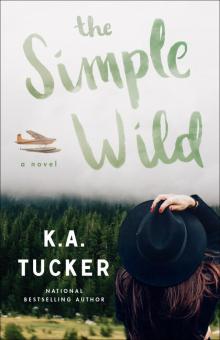 The Simple Wild
The Simple Wild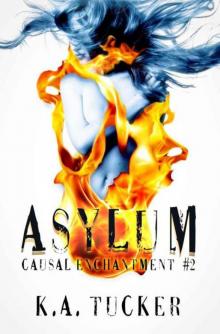 Asylum
Asylum Anathema
Anathema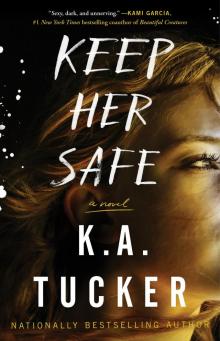 Keep Her Safe
Keep Her Safe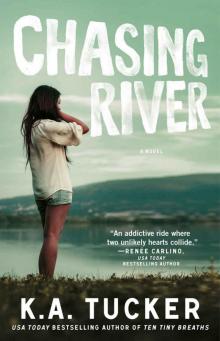 Chasing River
Chasing River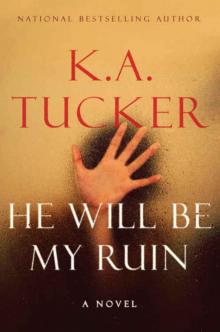 He Will Be My Ruin
He Will Be My Ruin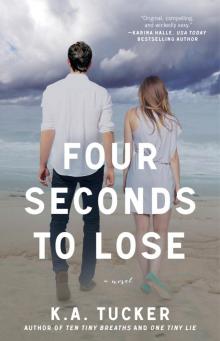 Four Seconds to Lose
Four Seconds to Lose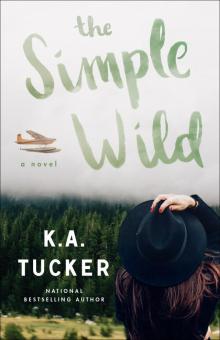 The Simple Wild_A Novel
The Simple Wild_A Novel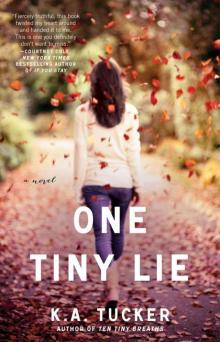 One Tiny Lie
One Tiny Lie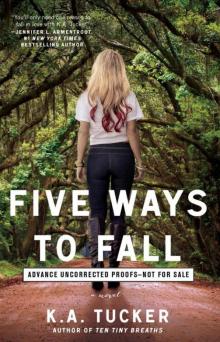 Five Ways to Fall
Five Ways to Fall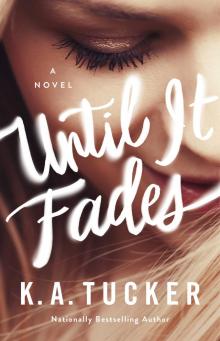 Until It Fades
Until It Fades Allegiance
Allegiance Say You Still Love Me: A Novel
Say You Still Love Me: A Novel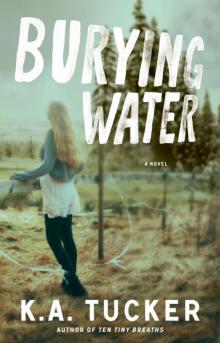 Burying Water
Burying Water The Player Next Door: A Novel
The Player Next Door: A Novel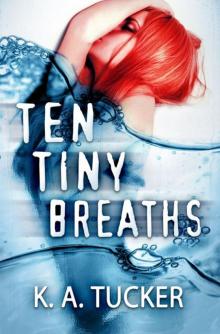 Ten Tiny Breaths
Ten Tiny Breaths A Fate of Wrath & Flame
A Fate of Wrath & Flame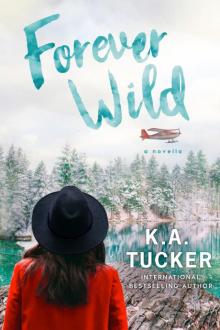 Forever Wild
Forever Wild Anomaly
Anomaly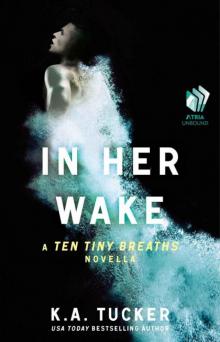 In Her Wake
In Her Wake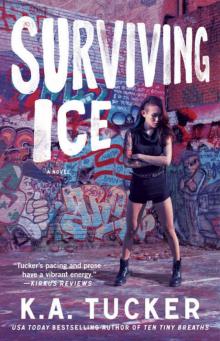 Surviving Ice
Surviving Ice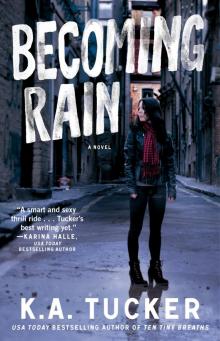 Becoming Rain
Becoming Rain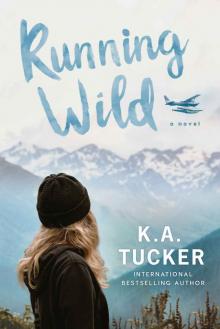 Running Wild: A novel
Running Wild: A novel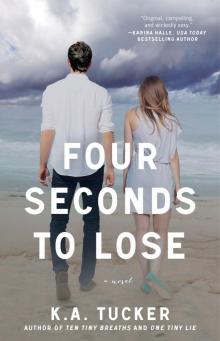 Four Seconds to Lose: A Novel
Four Seconds to Lose: A Novel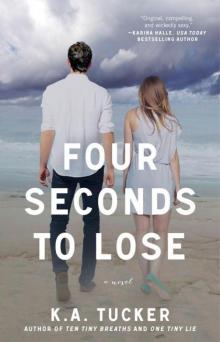 Four Seconds to Lose ttb-3
Four Seconds to Lose ttb-3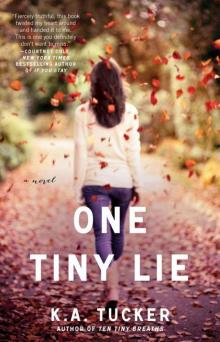 One Tiny Lie: A Novel
One Tiny Lie: A Novel Anomaly (Causal Enchantment)
Anomaly (Causal Enchantment)